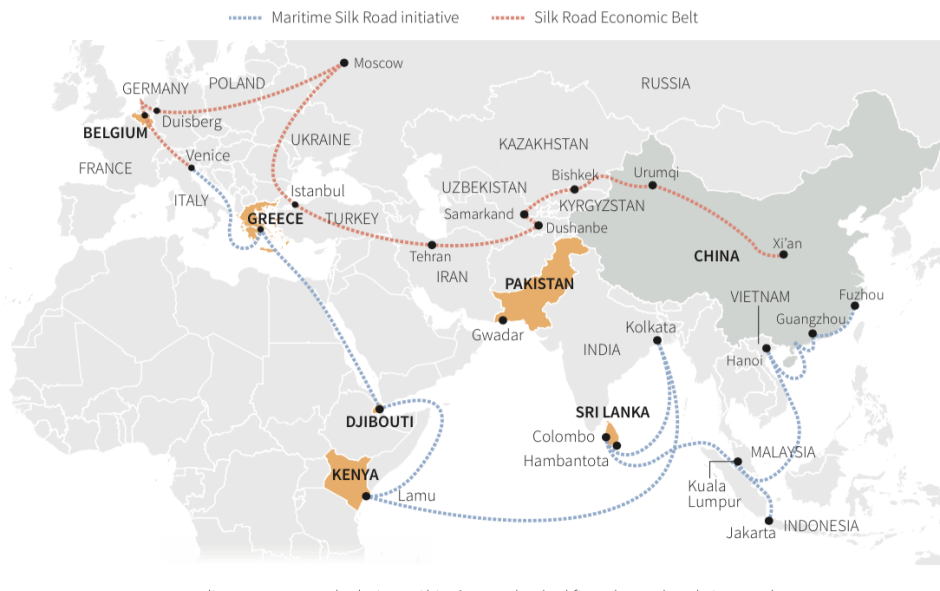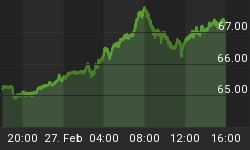Developing countries are facing an uphill battle as technology continues to transform the world. From infrastructure to energy, the World Bank estimates these countries will need to commit over $1.3 trillion to megaprojects to boost GDP and quality of life. These projects include oil and resource production, road and bridge construction, island building, pipelines, telecom infrastructure and more.
Established economic powerhouses are turning to these projects to cut back on the fallout from new tech such as 3D printing, automation or artificial intelligences on their workforce, offering lower skilled factory and service workers an opportunity to remain employed. But in order for developing nations to and stay competitive on a global level and meet the growing demands of their citizens, many nations are turning to the likes of China or the United States for assistance.
The One Belt One Road initiative, for instance, is a global project proposed by Chinese President Xi Jinping. The project is truly massive, spanning over 64 countries, accounting for 62 percent of the entire world’s population, and carrying an estimated cost of $5 trillion. Work on the project has already begun, with state-owned Chinese companies leading the investment charge. From the China-Pakistan corridor and a 1,800 mile high-speed train from China to Singapore to the half a trillion dollars already dropped on M&A deals in infrastructure sectors across Asia, there’s a lot of moving parts.

(Source)
Megaprojects like these will undoubtedly benefit all involved, but managing time, funds and potential corruption could prove to be a daunting task. This is most clear when looking at developing countries which have seen a boom in natural resources. Otherwise known as the natural resource curse, booms in precious or industrial metals, oil and gas or other commodities have, in many cases, wreaked havoc on the populations of the countries experiencing the new stream of investments and profits. This is largely due to corruption and poor management of the projects associated with these resources.
Blockchain megaprojects
The benefits of blockchain technology have been discussed at great length. The tech is touted as a revolution in transparency, efficiency and accountability, allowing any number of cogs in a machine to function together without a single party overseeing the endeavor. Related: Startup Aims To Attract Young Renters With Savvy Tech
Megaprojects like those the One Belt One Road Initiative have proposed offer the perfect use cases for blockchain technology. These projects involve contractors, investors and regulators from different countries who all need to work together, and the potential for instant payments, verifications and a new level of accountability should not be ignored.
Not only will the private sector benefit, the social sector stands to gain big, as well. From corporate responsibility to community development, blockchain implementation within these ecosystems can have a ripple effect throughout the countries involved.
The technology offers developing nations an opportunity to leapfrog into new political and economic positions, promoting transparency and fiscal accountability on a scale never before seen.
Challenges remain
Though blockchain technology does offer a lot of promises, accepting it and implementing it poses its own challenges.
First and foremost, those in power may not necessarily appreciate transparency in the same way that their citizens might. Already, corporations and governments have either spoken out against both blockchain or created their own private networks, citing unknowns, affordability and potential for abuse.
Related: Markets Open Higher Despite Ongoing Turkish Crisis
Another potential challenge is the technology’s limitations. After all, blockchain tech is still a relatively new development, and though some projects are already addressing issues such as transaction volume, electricity costs associated with maintaining the blockchain and more, new issues will likely continue to arise as the tech finds its way into more real-world megaprojects.
What’s next?
Despite the challenges, calls are already being made to take the One Belt One Road initiative digital. With many key players in the project beginning to experiment with blockchain technology, including the Chinese and Saudi governments, it would not be far-fetched to assume the tech will be integrated into megaprojects moving forward.
The private sector, as well, is making a push utilize the tech, with movements like the Belt and Road Blockchain Consortium meeting frequently to discuss the advantages of the technology and facilitate the entry of private blockchain companies into the initiative.
One of the key projects in the Belt and Road Blockchain Consortium is to address potential issues in the trade arbitration and dispute resolution process, with the goal of allowing participants to settle disputes utilizing a simple blockchain platform.
Though there’s still a long way to go in both the Belt and Road Initiative and blockchain adoption as a whole, the work being done currently provides a glimpse into the future of megaprojects worldwide.
By Michael Kern via Crypto Insider
More Top Reads From Safehaven.com:
















